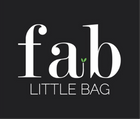
PERIOD AND SPORTS- IS A RE-FRAME NEEDED?
Written by Roza Bailey
Menstrual cycles can be complex and vary from person to person. In addition to the obvious bleeding for three to seven days, there are other aspects to bear in mind. Hormone levels fluctuate, and this can impact emotional state. Unfortunately, there is a lack of extensive research into these areas as women are often not included in exercise research to the same extent as men have been.
Excuses for this include the complexities of the menstrual cycle providing barriers to clear research findings in clinical trials. Costello et al undertook a review of 1382 studies in this area involving over 6 million participants, from 2011 to 2013. They found the representation of women to be 39%. This underrepresentation is apparent in many medical studies leading us to not know enough about the effects of the menstrual cycle on physical activity and sports.
However, there is renewed emphasis on this now and a good source of data is The WellHQ. They have some great blogs including one on the future role of women in sport as ‘athletes, professionals, champions and flag-bearers. In sport and beyond’.

When it comes to sporting activities, pads aren’t always the best option when it comes to playing sports on your period. They can become uncomfortable, may leak and may be inconvenient for many activities, for example swimming. Other options are tampons or menstrual cups. It is important to try out different sizes at different stages of your period, too, as for instance, using tampons for a heavy flow on light days will feel uncomfortable. Tampons also expand differently, some lengthways with others widthway. It can initially be a case of trial and error. Similarly for menstrual cups, it is a good idea to try different sizes available to see which works best. Whilst many shy away from cups, most who use them say that after some practice, menstrual cups work really well and adapt well to body movement which is great for sport! When period products are uncomfortable or make us feel uncomfortable, this can affect participation and involvement in physical activity.

Does being on your period affect sports?

Research has found periods to result in a lack of motivation and belief in ability. Bruinvels et al found, in their study, that 41.7% of female athletes believed their menstrual cycle had a negative impact on exercise training and performance. Further, Brown et al found that athletes they interviewed, across a variety of sports, reported physical symptoms alongside mood disturbances and a reduced motivation to train.
Findings that periods can have a negative effect when doing physical activity, are consistent, but what about for elite athletes? A recent article in The Telegraph investigated how Olympic athletes manage their periods. They found common practices included using birth control or monitoring periods closely, for example with an app called “Fit for Women”. Chelsea Women’s FC use this app and were the first club to tailor their training schedule to players’ menstrual cycles, to reduce the rates of injury and enhance performance.
Furthermore, a 2021 study involving female footballers found that hormone fluctuations can influence tissues including ligaments, tendons and muscles. The rates of muscle and tendon injury were 88% greater in the late follicular stage, just before ovulation. This would therefore be very important for athletes to consider if they are performing intensely at such high levels.
Messaging is important and the irony is that exercise can be hugely positive when on your period, it can reduce cramps and lethargy and releases endorphins. You may not be trying to smash records or be at your peak performance but engaging in sports or physical activity for most people proves to have a beneficial impact on how we feel during our periods.
It has been found in ‘The Always Confidence and Puberty Wave IV Study’ including 1002 females in 2016, that 64% of girls will have quit sports by the end of puberty (around 16-17). Furthermore, 55% of girls aged 12-16 were found not to play any sports. The reasons for these high rates are numerous, but periods certainly have a part to play.

Taboos surrounding women, sports, and periods.

Perhaps we need to re-frame how sports and periods are perceived, discussed and presented? Greatersports.co.uk suggests that the 3 R’s: reframing, redefining and reinforcing the enjoyment of activity is key. So maybe a solution is a shift away from the view of traditional sports as the main forms of exercise and a promotion of any activity that is physically demanding. Therefore, those with periods may feel more comfortable in taking part in a variety of activities and can find what suits them. Then, the enjoyment of activity could hopefully carry forward into adulthood when the barriers of periods may not feel so great.
Thankfully positive action has now been taken in the UK to reduce period poverty by enabling schools and places of learning; colleges and universities, to provide free period products on site. This helps tackle the socioeconomic barrier attached to periods and therefore exercise. Small businesses like FabLittleBag have also created initiatives that focuses on promoting confidence in girls in sports. FabLittleBag aims to collaborate with sports clubs across the United Kingdom to educate young girls in sports on period confidence, while also providing them with a convenient disposal method.
So- let’s reframe, redefine and reinforce sport and exercise throughout school years and on into adulthood. Let’s offer transparent, open period education so those starting puberty feel they can try different options to find what is best for them for physical activity. Let’s ultimately work to ensure the continual involvement and enjoyment of sport and potentially improve it. Reiterating the positive messages between periods and sports will achieve a new narrative which will hopefully lead to more people engaging in sports from puberty and beyond!
